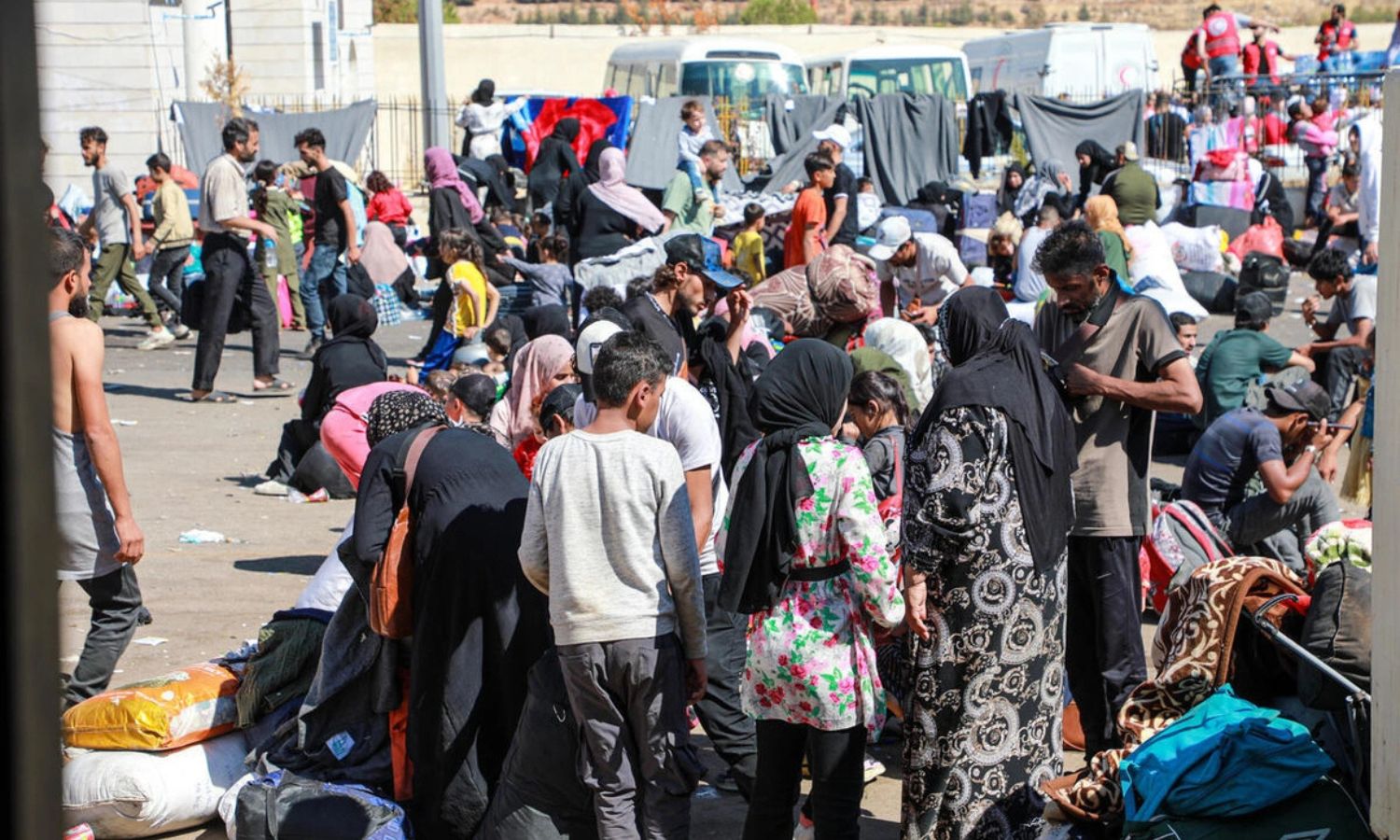



The UN Special Envoy for Syria, Geir Pedersen, called for the implementation of five urgent steps in Syria, emphasizing the importance of resuming the political process.
This came during a session held by the UN Security Council on Wednesday, October 23, to discuss the situation in Syria. Pedersen stated that the repercussions of the conflict in the occupied Palestinian territories, including Gaza, and in Lebanon are reflected in Syria, warning of the consequences of the regional conflict extending to Syria.
The Special Envoy for Syria said, “We are now witnessing all indicators pointing to an impending military, humanitarian, and economic storm hitting Syria, which is already devastated, with serious and unpredictable consequences for civilians and international peace and security,” directing five urgent appeals in this regard.
First: He called for protecting Syria from the impacts of the regional conflict and renewed the call to respect Syria’s sovereignty, unity, independence, and territorial integrity.
Second: The envoy warned of the danger that regional escalation could lead to the collapse of the ceasefire agreements, which have led, albeit imperfectly, to a freezing of front lines within Syria for nearly four years. He stressed the need for further efforts to de-escalate toward a comprehensive ceasefire in line with UN Resolution 2254.
Third: He called for an immediate de-escalation of regional tensions and reiterated the Secretary-General’s call for an immediate ceasefire in Gaza and Lebanon.
Fourth: He urged all Syrian and international actors, including Israel, to comply with the provisions of international humanitarian law, including the principles of distinction, proportionality, and precaution.
Fifth: The Special Envoy reminded of the importance of the UN Disengagement Observer Force, emphasizing the necessity for both parties (the Syrian regime and Israel) to adhere to the terms of the disengagement agreement.
Pedersen stated that last month saw the fastest and most extensive Israeli airstrikes in the past thirteen years, hitting dozens of sites across Syria, including residential areas, even in the heart of the capital Damascus.
The Special Envoy for Syria expressed his fear that “we will continue to see Syria suffering from one crisis after another without end, unless the political process led by Syrians and facilitated by the United Nations, which has been stalled for a long time, is resumed.”
Meanwhile, the Director of Operations and Advocacy at the Office for the Coordination of Humanitarian Affairs (OCHA), Edem Wosornu, addressed three main issues: the increasing humanitarian impact of hostilities in the region on Syria, the ongoing and immense crisis in Syria, and the urgent need to ensure sufficient support for both emergency response and early recovery.
She noted that more than 16.7 million people are in need of assistance in Syria, over seven million people have been displaced internally, and women and girls continue to bear a disproportionate burden, including increased risks of gender-based violence.
She explained that the new flow of displaced persons underscores the importance of finding sustainable solutions for individuals who have relied on humanitarian assistance for years.
To achieve this, Wosornu stated that the UN and its partners have finalized the early recovery strategy for the period from 2024 to 2028, which will be launched in the coming weeks.
According to the UN official, the strategy aims to rally support for targeted, area-based, and medium-term humanitarian assistance programs as a complement to short-term interventions under the humanitarian response plan.
Pedersen had stated last September, during his meeting with Iranian Deputy Foreign Minister Ali Asghar Khaji, that “we must break the deadlock in the Constitutional Committee, build trust step by step, and explore solutions to achieve comprehensive peace in accordance with Security Council Resolution 2254.”
On June 25, the ambassadors of Syria and Iran to the United Nations called for meetings of the Syrian Constitutional Committee in the Iraqi capital, Baghdad.
The fate of the ninth round of the Syrian Constitutional Committee remains uncertain, as while Pedersen emphasizes that the best solution is to hold it in Geneva, the regime and its ally Russia reject that and demand to hold it in Baghdad, while Saudi Arabia’s capital Riyadh has been suggested as an alternative.
The discussion about the importance of activating the political process coincides with the continued military escalation in Syria, where northern regions of Syria witnessed intense bombardments from the Syrian regime and Russia last week, resulting in dozens of casualties.
Syria is also witnessing a wide wave of displacement from Lebanon, amid the ongoing Israeli war, with more than 400,000 Syrians and Lebanese recorded as displaced, amid fears of worsening displacement waves.
if you think the article contain wrong information or you have additional details Send Correction